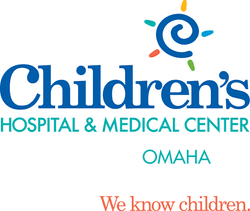Below are answers to some frequently asked questions about the Strategic Plan.
- What should I know about the Nebraska Early Childhood Strategic Plan?
- Why do we need this plan?
- Who developed the strategic plan?
- My community is different than others. How will this plan respect our way of doing things?
- What is the plan intended to achieve?
- What will be different for children and families as a result of the plan?
- What will be different for early childhood providers as a result of the plan?
-
What should I know about the Nebraska Early Childhood Strategic Plan?
Here are three important things to be aware of concerning the Strategic Plan:
• The Nebraska Early Childhood Strategic Plan is a dynamic plan by and for Nebraskans.
• The vision of the plan is to provide all Nebraska children and their families with access to quality early childhood services.
• The plan is intended to ensure that no matter where a family lives or what challenges they face, every child in Nebraska can access quality early childhood education and other essential services. -
Why do we need this plan?
The science of early childhood development makes clear that providing quality early care and education is essential not only for the healthy development of our children and families but also for the economic vitality of our communities, our state, and our nation. Yet in communities across Nebraska, many families lack access to quality early childhood services. As Nebraskans, we seek to close this gap between what we know is good for our children, families, and communities and what we currently provide. Ensuring access to quality early childhood services for every child in Nebraska is at the heart of the strategic plan.
-
Who developed the strategic plan?
The Nebraska Early Childhood Strategic Plan was developed through a collaborative statewide process that builds on Nebraska’s strengths. Thousands of Nebraska families, early care and education providers, and other professionals provided information through statewide surveys and interviews. Using that information, hundreds more Nebraskans participated in discussions to develop a strategic plan that provides a framework for how our state can improve early childhood services.
-
My community is different than others. How will this plan respect our way of doing things?
From the beginning of the strategic planning process, stakeholders emphasized the importance of listening to community voices to ensure that, no matter where a family lives or what challenges they face, every child in Nebraska can access quality early childhood education and other essential services. The next stage of strategic planning will include a continued focus on listening to community voices.
-
What is the plan intended to achieve?
The plan defines four interrelated goals, each with corresponding objectives. These goals are intended to create a more integrated early childhood system—work on any one of the goals will impact and inform the other goals. The four goals are designed to ensure access for children and families to quality experiences in every early childhood setting, which requires collaboration across every community and alignment of systems across the state.
-
What will be different for children and families as a result of the plan?
Each child and family in Nebraska should be able to access quality early childhood education and other essential services in their community, no matter where they live or what challenges they face, including the availability of enough early care and education options (in terms of capacity, quality, and types of service) and the reduction of barriers to accessing quality care, including those related to cost, transportation, or flexibility of hours as well as systemic barriers related to race, ethnicity, gender, language of origin, disability, or any other social or cultural characteristic.
-
What will be different for early childhood providers as a result of the plan?
Early childhood professionals should have access to a supportive professional environment that assists and empowers them to provide quality care and education for children and families—throughout their career and no matter where they work. This involves improving wages, benefits, access to education, and other professional supports that contribute to physical and mental well-being. In addition, we are striving to improve alignment of economic, social, regulatory, and funding policies to streamline business operations, reducing the administrative burden on early childhood providers while allowing them to cover the costs of providing quality programs.












